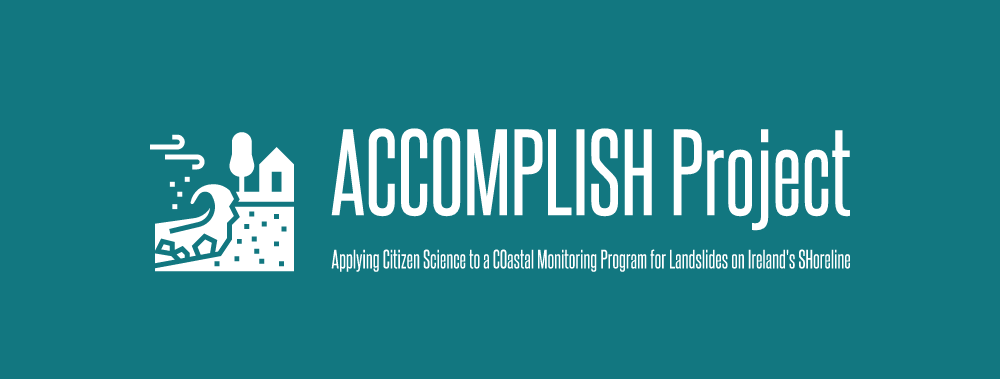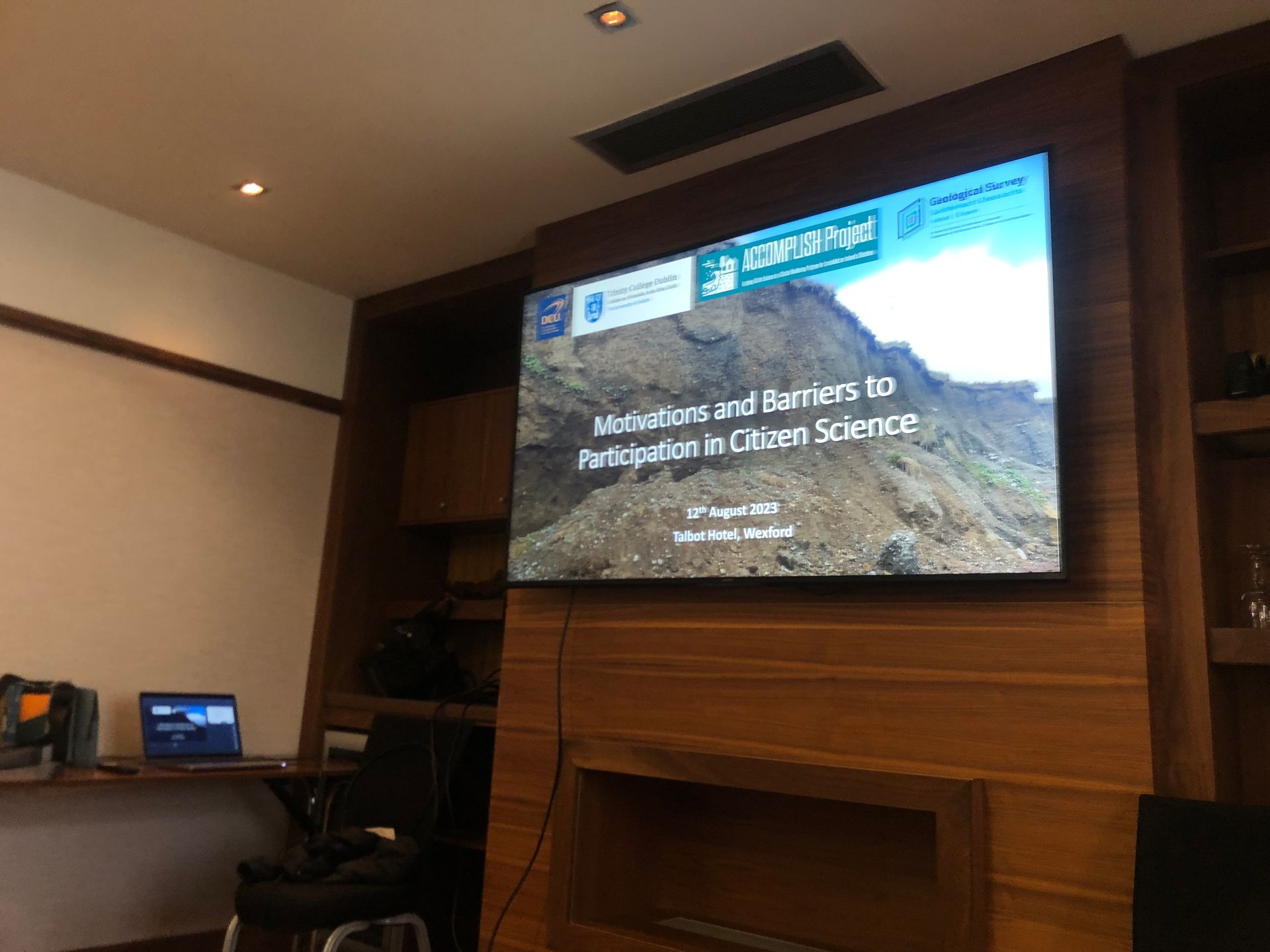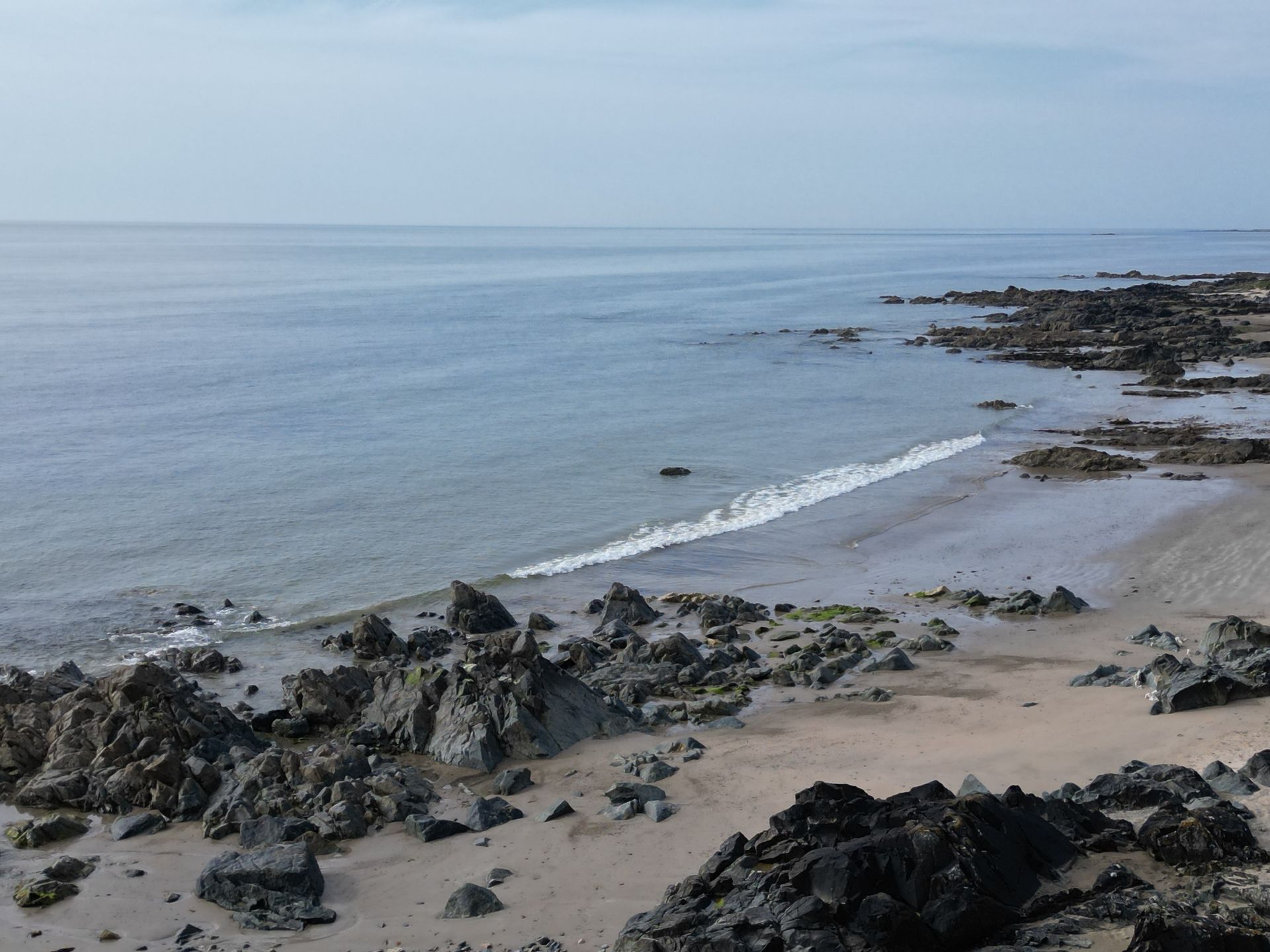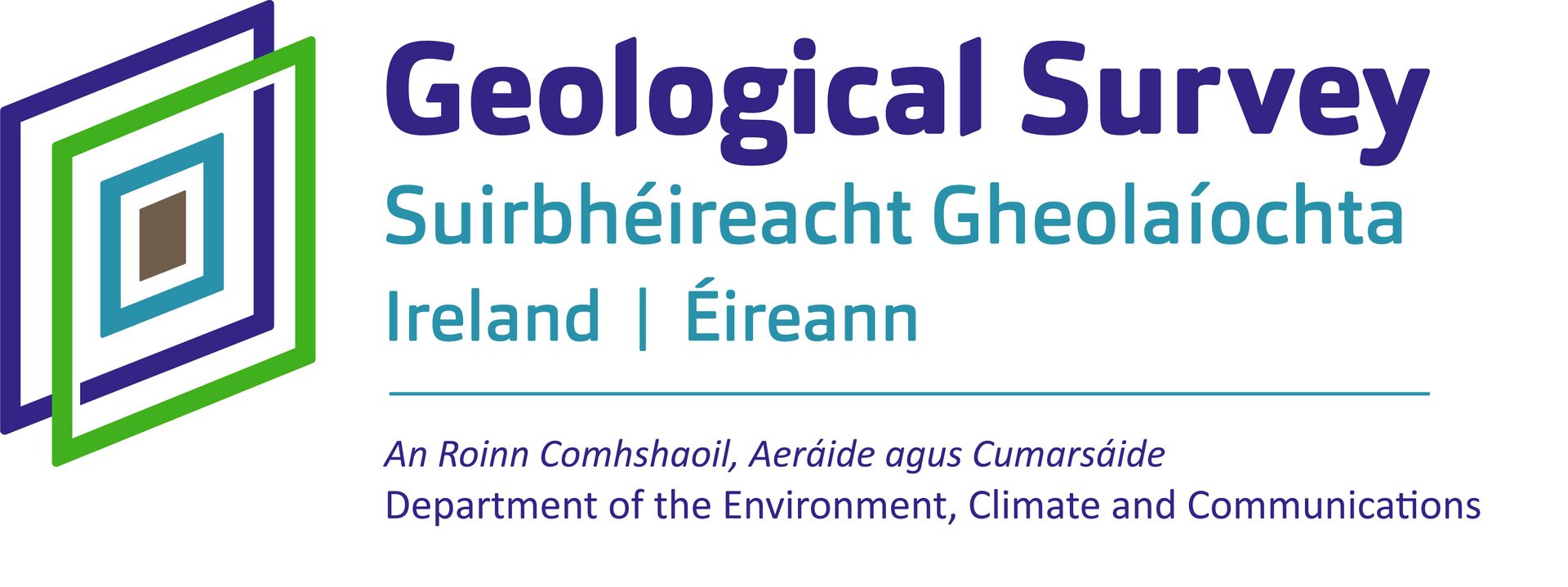Monitoring the Weather
Weather plays a crucial role in our lives, from planning outdoor activities to triggering landslides. Weather stations are an important element of the ACCOMPLISH project, which focuses on increasing the reporting of coastal landslides in Ireland. These weather monitoring stations provide valuable data that can contribute to understanding and mitigating the risks associated with coastal landslides. In this blog, we will explore the functions of weather stations and discuss why they are indispensable in a project like Accomplish.
What are Weather Stations?
Weather stations are devices or network instruments designed to measure and record atmospheric conditions without the intervention of humans. These stations collect data on various weather parameters, including temperature, humidity, air pressure, wind speed and direction, precipitation, and more (Susmitha and Sowmyabala, 2014).
The ACCOMPLISH Project currently has nine weather stations installed throughout Wexford, Wicklow and Dublin that collect data on an hourly basis. All of the weather stations are located on volunteer property and will be left in place once the pilot monitoring period is completed.
Why are Weather Stations Important for this Project?
Data Collection: Weather stations in the Accomplish project gather data on various meteorological parameters, including rainfall intensity, wind speed, and temperature fluctuations. This data helps us to understand weather conditions and their relationship with coastal landslide occurrences.
Correlation Analysis: By integrating weather data with landslide reports, researchers and experts can analyse the relationship between weather events and landslides. Identifying patterns and trends can aid in developing predictive models, enhancing the ability to forecast and mitigate the risks associated with coastal landslides. The most common trigger for landslides is extended and intense rainfall, says Sidle (2007), so having weather station data is important for understanding coastal landslides in Ireland.
Risk Assessment: The data collected by weather stations enables scientists to assess the vulnerability of coastal areas to landslides. They can determine areas at higher risk by considering rainfall intensity, wind speed, and soil moisture content. This information assists in developing appropriate strategies to minimise the impact of landslides and improve overall coastal management (Leal Sousa et al., 2021).
Early Warning Systems: Weather stations play a vital role in developing early warning systems for coastal landslides. By monitoring weather conditions, they can detect potential triggers and provide timely alerts to authorities and local communities. This allows for prompt evacuation and implementation of preventive measures, reducing the potential for casualties and property damage (Bernardes et al., 2022).
References:
Bernardes, G.F.L.R. et al. (2022) ‘Prototyping low-cost automatic weather stations for Natural Disaster Monitoring’, Digital Communications and Networks [Preprint]. doi:10.1016/j.dcan.2022.05.002.
Sidle, R.C. (2007) ‘Using Weather and Climate Information for Landslide Prevention and Mitigation’, in Climate and Land Degradation, pp. 285–307.
Susmitha, P. and Sowmyabala, G. (2014) 'Design and Implementation of Weather Monitoring and Controlling System', International Journal of Computer Applications, Volume 97, No.3, pp. 19-22.
Leal Sousa, R. et al. (2021) ‘Risk assessment on landslides focused on the role of the water: Examples from Model Regions (rio de janeiro state and Hong Kong)’, SN Applied Sciences, 3(4). doi:10.1007/s42452-021-04300-5.
Leahy, P. et al. (2021) Tools for Climate Change Attribution of Extreme Weather Events. rep. Wexford: ENVIRONMENTAL PROTECTION AGENCY.









